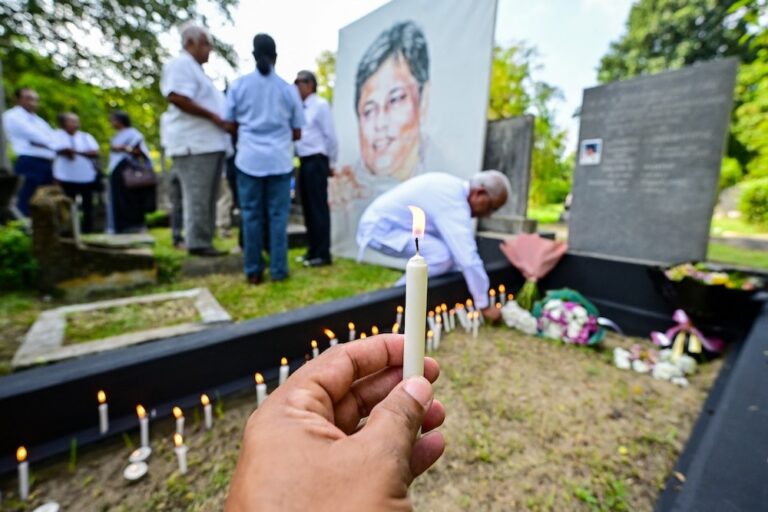Access to the independent news websites Lankaenews, Lankanewsweb, Infolanka and Sri Lanka Guardian has been blocked by the country's main ISP.
(RSF/IFEX) – Reporters Without Borders condemns the imposition of additional restrictions on online free expression in Sri Lanka as the country held a presidential election on 26 January 2010. Access to the independent news websites Lankaenews, Lankanewsweb, Infolanka and Sri Lanka Guardian has been blocked by the country’s main Internet Service Provider.
“The authorities blocked access to several independent websites just hours before the results of a very close presidential election were due to be announced,” Reporters Without Borders said. “Such censorship reflects a beleaguered government’s nervousness and readiness to resort to manipulation.”
The press freedom organisation added: “The free flow of news and information during an election offers one of the few guarantees against massive fraud. We urge the government to restore access to these sites as the electoral commission has requested.”
Speaking on condition of anonymity, a Lankaenews journalist told Reporters Without Borders that the site had been rendered inaccessible within Sri Lanka since the morning of 26 January by Sri Lanka Telecom (SLT), the country’s main ISP. It can still be accessed from abroad. Other Internet users told Reporters Without Borders the site can also still be accessed via the privately-owned ISP Dialog Wemax.
“According to a source working for SLT, verbal directives were given to block the site,” the Lankaenews journalist said. “We complained to the electoral commission, which has referred the complaint to the SLT. We also asked the head of SLT but so far we have not had any answer. Meanwhile, our staff have been getting threatening phone messages with comments such as ‘We are coming to deal with you’.”
The journalist added that he had still received no news of his Lankaenews colleague, political analyst Prageeth Eknaligoda, who has been missing since the evening of 24 January. Eknaligoda had just written a long piece comparing the two leading presidential candidates and expressing a preference for the opposition candidate.
Fellow journalists fear that Eknaligoda’s disappearance is linked to his article. One of his colleagues said he saw police search Eknaligoda’s home on 26 January.
This latest act of censorship comes after days of all-out exploitation of the state media to support the president’s reelection bid and a wave of threats and intimidation of journalists.
Last March, Reporters Without Borders added Sri Lanka to its list of “countries under surveillance” because of concern about threats to online free expression. The press freedom organisation publishes a list of “Enemies of the Internet” and “countries under surveillance” every March, on Online Free Expression Day.
Sri Lanka was added to the list because access to Tamil-language sites and the Human Rights Watch website had been blocked, while the Lankadissent site ceased to operate in January 2009 following threats.


